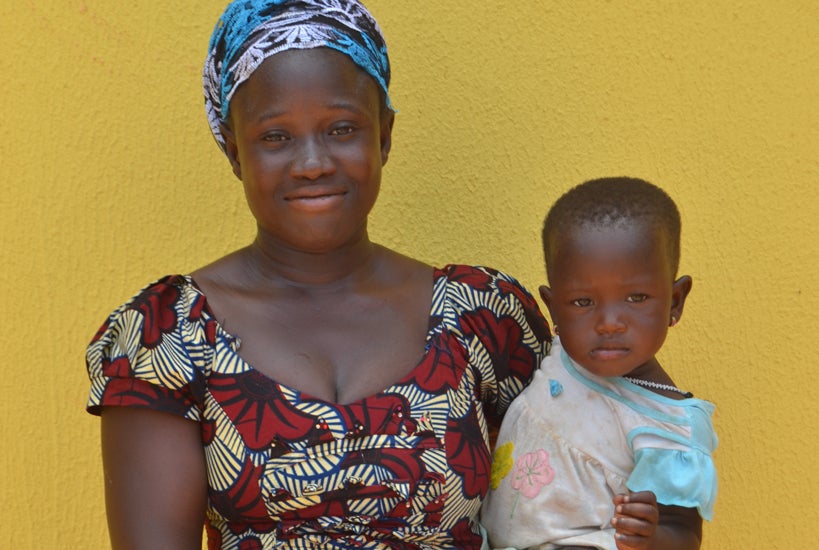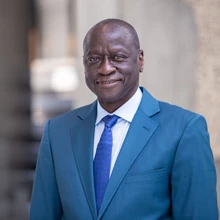 Promoting Wage Equality in the Labor Market in Africa: a Moral Imperative
Promoting Wage Equality in the Labor Market in Africa: a Moral Imperative
Listen to the blog
The COVID-19 crisis has exacerbated wage and occupational inequalities between men and women. As we look towards the recovery from the devastating impact of the COVID pandemic, we must use this as an opportunity to rebuild societies that will provide women and men with equal opportunities in the working world.
In Africa, as in other parts of the world, women earn less than men. Globally, men earn on average 15% to 30% more than women. According to the International Labour Organization, in Sub-Saharan Africa, the median monthly income of men is more than twice that of women, and a recent study on the potential of female entrepreneurship in Africa showed that the incomes of female entrepreneurs are, on average, only two-thirds of that of male entrepreneurs.
Breaking the glass walls
These wage disparities are, of course, due in part to persisting legal and social discrimination. Wage gaps are also underpinned by unequal access to high-paying professions. The sectors in which wages are highest are generally dominated by men, and few women hold managerial or decision-making positions. They generally work in the public sector and in social services, with far fewer working in financially lucrative sectors such as finance, IT, and tech. Consequently, the glass ceilings that hinder the professional advancement are reinforced by glass walls that block their access to the same professions and jobs as men, as pointed out in the World Bank report: “Breaking Barriers: Female Entrepreneurs Who Cross Over to Male-Dominated Sectors.”
The COVID-19 pandemic has widened wage and income inequalities between women and men, exposing some of the social and structural barriers that need to be addressed in order to achieve wage equality. Very often, women have a heavier workload in the home, which limits their opportunities in terms of paid employment. With the closing of schools, women were the first to lose their jobs or to have to shutter their businesses.
Faced with these walls, the most effective measures continue to be those that target education and training, in addition to reforms aimed at making the professional world (and the laws that govern it) more accessible and hospitable to women.
Education: the path to equal opportunities and support for mothers
Wage and occupational inequalities are often rooted in pre-existing inequalities in access to education. Improving access to education for girls, in particular in the areas of science, technology, engineering, and mathematics (STEM), can positively impact the occupational segregation that shuts many women out of certain high-paying jobs.
Providing quality education for girls and boys, especially from early childhood, also relieves mothers of a number of domestic tasks so that they can focus on income-generating activities without having to worry about the care and development of their children. Countries such as Ghana should be viewed as examples. The Government of Ghana provides two years of free universal preschool education, making it one of the countries with the highest enrollment rates in early childhood education in Sub-Saharan Africa. A mobile childcare project in Burkina Faso, conducted in collaboration with the World Bank Group’s International Development Association and UNICEF, also had a positive impact on women’s career prospects and their mental health.

Initiatives to strengthen occupational training for young girls and women as well as their access to information should also be replicated. In the Republic of Congo, information on income by occupation, provided through an occupational training program, led to a 28.6% increase in the likelihood that women would opt to work in traditionally male-dominated sectors. Such initiatives can have a major impact without necessarily being expensive.
Laws to promote the economic inclusion of women
Lastly, the passage of laws that promote gender equality in general can expand the range of opportunities open to women and unlock their potential. Gabon currently stands out, as it has undertaken comprehensive reform of its civil code and enacted a law to eliminate violence against women. These measures have boosted its index score from 57.5 in 2020 to 82.5 in the World Bank’s Women, Business and the Law 2022 report, pushing its ranking up to tenth among African countries. These advances grant women the same rights as men in many areas, in particular choosing their place of residence, obtaining employment without their husband’s permission, and being able to head households on an equal footing with men.
Reforms in Benin have removed the restrictions on women’s employment in the construction sector, with women now being able to hold any job in the same way as men. Sierra Leone has provided women with access to credit by prohibiting gender-based discrimination in financial services.
While wage and occupational inequalities persist on the continent, progress has been made. Africa’s development cannot take place without gender equality. In addition to being a moral imperative, achieving wage equality is the best strategy to foster inclusive development. In Nigeria, for example, it is estimated that greater participation of women in key sectors of the economy could lead to gains of $22.9 billion, or roughly 5.8% of the country’s GDP. This should be enough to spur all political and economic actors into redoubling their efforts to break down barriers and achieve wage equality. It is by working together that we can break down these glass walls.
This op-ed was originally published on lepoint.fr


Join the Conversation